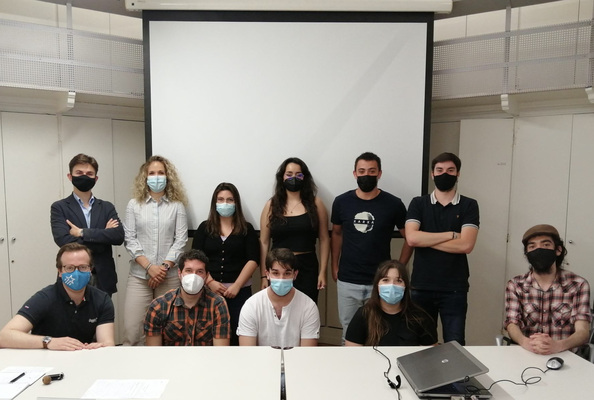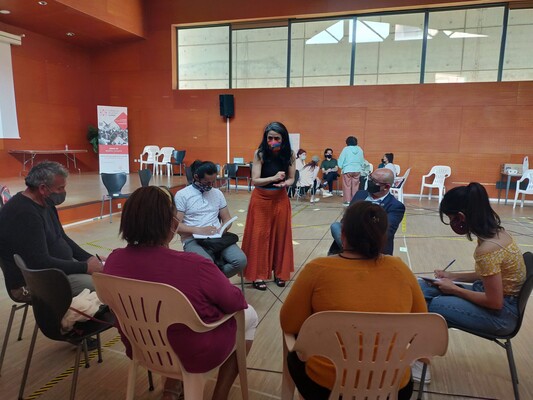A group of young people with responsibility in political parties and social organizations in Catalonia participated in a training workshop on organizational leadership skills promoted by ICIP. The goal of the workshop was to strengthen the skills of difficult but respectful dialogue.
In total, they took part in four sessions, of four hours each, on May 14, 15, 21 and 22. The participants were:
- 4 organisations: Creu Roja Joventut, Avalot – UGT Jove, deba-t.org and F98.
- 7 political parties: Confluència Jove, Jóvenes Ciudadanos, Joventuts Nacionalistes de Catalunya, Jovent Republicà, Joventuts Socialistes de Catalunya, La Forja i Noves Generacions de Catalunya.
According to ICIP director Kristian Herbolzheimer, “global political and social challenges require a new way of understanding leadership and the ability to coexist in a constructive discrepancy.” Herbolzheimer noted that “this exercise generates a different type of conversation than the usual political confrontation and helps to become aware of perspectives different from one’s own.”
After four days of activities, the group gave a very positive assessment of the workshops promoted by ICIP. “These have been a few days of work where different internal, social and organizational conflicts have been raised and through individual and group work we have been able to develop the ideal leadership skills to meet these present and future challenges,” summed up Olympia Arango, vice president of deba-t.org.
The training was based on the Adaptive Leadership methodology developed at Harvard University. The programme brings together a group of people with diverse perspectives and invites them to participate in real-time analysis, reflection and practice exercises. This can involve challenging conversations and ideas that reflect deeply ingrained values and assumptions and clarify how to expand options and capacities for analysis and intervention in political spaces and systems. One of the most significant challenges for participants is presenting and submitting to the group analysis of failed leadership situations.
This programme was promoted by ICIP’s “Social and Political Dialogue” area of work, which aims to offer analysis tools for conflict management and transformation, emphasising promoting dialogue in Catalonia. In this area, ICIP develops various methodological proposals to reach a greater number of people and organizations.

In the photo, standing, from left to right: Ignacio Rigau (Noves Generacions Catalunya), Laura Casado (Jovenes Ciudadanos), Mònica Pujadas (Creu Roja Joventut), Olympia Arango (deba-t.org), Biel López (La Forja) and Marçal Escartín (Jovent Republicà). Sitting, from left to right: Álvaro Clapés-Saganyoles (Joventut Nacionalista de Catalunya), Daniel Martínez (Joventut Socialista de Catalunya), Pablo Jurado (Confluència Jove), Pilar Cortés (Avalot – UGT Jove) and Joan Jordi Abentín (F98).

